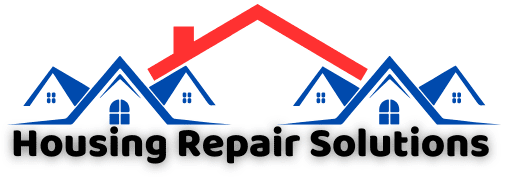Housing Disrepair Claims & Solutions | Get Compensation Today
Tenant Rights & Tenancy Agreements: What You Should Know
Recent Blogs
Every renter has the right to have a place that is
Can you sue for emotional distress in the UK? While
Struggling with housing disrepair? Learn how to find the best
Housing benefits have been important for helping individuals and families
Tenant Rights & Tenancy Agreements: What You Should Know
A tenancy agreement template is a crucial document that outlines the legal relationship between a landlord and a tenant. It establishes the terms of renting a property, including the rights and obligations of both parties. Understanding tenant rights and responsibilities is essential for ensuring a smooth renting experience and avoiding potential legal disputes. Whether you’re a tenant looking for secure housing or a landlord managing rental properties, knowing the legal framework can prevent conflicts and protect both sides.
What is a Tenancy Agreement?
A tenancy agreement is a legally binding contract between a landlord and a tenant. It details key aspects such as rent amount, payment schedule, duration of tenancy, maintenance responsibilities, and conditions under which the agreement can be terminated. While verbal agreements can be legally valid in some cases, a written tenancy agreement template provides clear documentation that can be referred to in case of disagreements.
Tenant rights and responsibilities: What You Need to Know
Tenants have specific rights designed to protect them from unfair treatment and ensure they live in a safe and well-maintained property. Some of the most important tenant rights include:
1. Right to a Safe and Habitable Home
Every tenant has the right to reside in a property that meets legal safety and health standards. Landlords are obligated to provide basic amenities such as:
- Access to clean running water
- Proper heating and ventilation
- Secure locks on doors and windows
- A structurally sound building
If a rental property falls into housing disrepair, such as having mold, leaks, faulty heating, or electrical issues, the landlord must arrange repairs. Failing to do so may allow tenants to take legal action. to take action contact us now
2. Right to Fair Rent
The rent amount should be reasonable and in line with the market rates. If a landlord wants to increase rent, they must follow legal procedures, provide advance notice, and justify the change. Arbitrary rent hikes without proper notice can be challenged legally.
3. Right to Privacy
Landlords must respect a tenant’s right to privacy. This means they cannot enter the property without providing proper notice, usually 24 to 48 hours, except in emergencies. If a landlord frequently enters without notice, it may be considered harassment, which is illegal.
4. Right to Request Repairs
If tenants experience maintenance issues, they have the right to request repairs. If a landlord ignores such requests, tenants may file tenant rights to seek compensation or force repairs through legal means.
5. Protection from Unfair Eviction
Tenants cannot be evicted without a valid legal reason. If a landlord wishes to remove a tenant, they must:
- Provide proper notice as per the tenancy agreement
- Follow the legal eviction process
- Obtain a court order in cases of dispute
Unfair eviction, such as forcibly changing locks or removing belongings without legal authority, is illegal and can lead to legal consequences for the landlord.

Tenant Responsibilities: What You Must Follow
While tenants have rights, they also have responsibilities to ensure a good relationship with their landlord and maintain the rental property. These responsibilities include:
1. Paying Rent on Time
Tenants must pay rent as per the agreed schedule. Late payments can result in penalties, legal action, or even eviction in extreme cases.
2. Taking Care of the Property
Tenants are responsible for keeping the property clean and reporting any damages or maintenance issues promptly. They should not make major modifications without the landlord’s permission.
3. Respecting Neighbors and Community Rules
Being a responsible tenant means respecting neighbors by avoiding excessive noise and following community guidelines set by the landlord or housing association.
4. Not Subletting Without Permission
Many tenancy agreements prohibit subletting without the landlord’s approval. Tenants should check their agreement before allowing someone else to live in the property.
5. Giving Proper Notice Before Moving Out
Tenants must provide the required notice period before vacating the property. Failing to do so may result in losing their security deposit or additional charges.
Dealing with Housing Disrepair: What to Do
If a property falls into housing disrepair and the landlord refuses to fix the issues, tenants can take the following steps:
- Report the problem in writing: Document the issue and notify the landlord.
- Keep records: Save copies of complaints, emails, and photographs of the damage.
- Seek legal advice: If the landlord ignores requests, tenants may file housing disrepair claims and seek compensation for inconvenience or health issues caused by poor living conditions.
Conclusion
Understanding tenant rights and responsibilities is essential for a smooth rental experience. A well-structured tenancy agreement template protects both landlords and tenants by clearly defining their obligations. If tenants face housing disrepair, knowing the correct legal steps can help resolve the issue effectively. By being informed and proactive, tenants can ensure a safe and comfortable living environment while fulfilling their responsibilities as renters.
